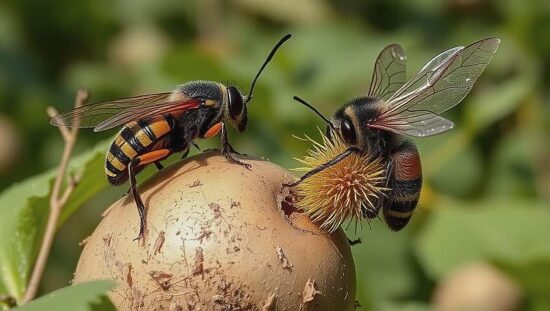A Growing Concern for German Agriculture as a Rapidly Spreading Pest Threatens Crops
The president of the German Farmers’ Association, Joachim Rukwied, has sounded the alarm over a rapidly spreading pest that is infesting crops and posing a significant threat to the country’s agricultural sector. The pest in question is the Schilf-Glasflügelzikade, a type of leafhopper that is spreading rapidly across the country.
According to a report by Bild, the pest is infecting potatoes, sugar beets and a growing number of other vegetables, causing them to wither and become soft and rubbery. The disease, known as Stolbur, is spread by the leafhopper and can cause significant damage to crops, with the potential for total crop failure.
Rukwied expressed his deep concern over the situation, stating that the pest is a real threat to the agricultural sector and food security. He noted that the leafhopper has already spread from its initial locations in Baden-Württemberg, Rheinland-Pfalz and Bavaria to other regions, including Hesse and is now also affecting Lower Saxony and Saxony-Anhalt.
The president emphasized the urgent need for effective measures to combat the pest, as 75,000 hectares of sugar beet land are at risk, which is approximately a quarter of the country’s total sugar beet cultivation area. Additionally, the Union of German Potato Growers estimates that around 65,000 hectares of land are at risk of infestation, which is approximately 23 percent of the country’s total potato cultivation area.
Rukwied warned that the infestation is not only a threat to potato crops, but also to a range of other vegetables and that if the pest is not brought under control, it could lead to a shortage of domestically grown produce, potentially driving up prices. The anthesis of late potato harvests in some regions is already a concern and the spread of the disease to a variety of vegetable crops is a growing concern for the agricultural sector.





